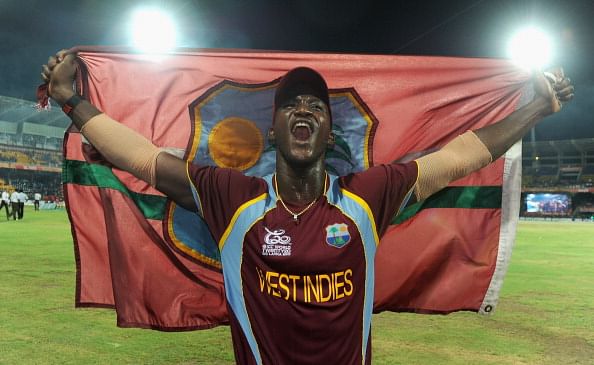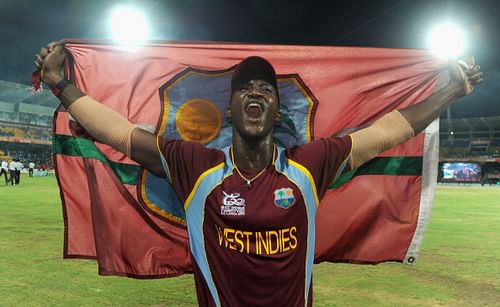
Darren Sammy: Should the West Indian Cricket Board have retained him as captain?
Seldom do you find successful leaders being replaced by their lesser established peers, as it doesn’t help either the firm or the person himself; because once upon a time, before he was replaced that is, he was one of their most valuable assets, and now, he’s equivalent to a regular employee, or at best, a slightly above average asset. What happens to the company after that is hard to imagine; they could grow into a major force in the market, or they could be left high and dry only to be hammered into a corner by their competitors. What happens to the employee in question you say? Well, lets just leave that part unanswered.
Such is the story of the now ex-West Indian skipper Darren Sammy. The World T20 winning captain of the Caribbean nation is now one such ‘employee’. Darren Sammy, arguably one of the best captains West Indies have had in the last 8 years or so, is now facing a situation where he is no longer the asset he once was. Many questions were raised as to why he was replaced from his position in the ODI format. Most would say it was because the WICB was trying to find a replacement for the future, and was trying to emulate the success that England and South Africa have found with different captains for different formats.

Though the concept is sound, the implementation has been less than spectacular. The passing of the mantle from the senior to the junior should be done in such a way that the morale of the senior is not harmed and the junior receiving the coveted position isn’t overwhelmed when he gets projected as the future leader of a whole nation in the arena. Though the passing of the mantle in case of the West Indians wasn’t blown out of proportion like the one in New Zealand, it wasn’t as smooth as they would’ve liked.
Even though the elevation of Dwayne Bravo to skipper hasn’t been disastrous per se, it hasn’t been brilliant either. His place in the side is that of an all-rounder; he can bat pretty well, and not just in the T20 format. His medium pace bowling is effective in the middle overs, as we have seen in the recently concluded IPL, where he was the best bowler in terms of wickets taken. And his fielding has always been brilliant. If looked at from a cricketing perspective, this seemed a logical move. He is a charismatic player, who brought a lot more quality to the table than was previously offered, and has more experience than the current skipper in the world arena. Optimists would argue that it could yet prove to be a master stroke, but a realist would point out the shortcomings, with the Champions Trophy being the highlight.
Cricket aside, how do you decide whether a player can become a leader? Are his talents and abilities the only qualities you look for? Or are there other aspects that make or break the career of a possible ‘leader’? Let’s look at politics for a (slightly more) reasonable answer. A politician is one who represents the people he is chosen to represent, like the poster boy of his community,someone who might end up playing a large hand in determining whether the particular section of society that he represents is given everything they demanded, or rather everything they needed. His role in society is not exactly limited to winning an election on the pretext of fulfilling a few promises; rather it’s based on him keeping his job with dignity, where he doesn’t defame himself or the community he represents. He should also keep a constant tab on how things are functioning in the society, so that no one is left feeling that they voted for the wrong person i.e he should sustain his good work. A politician should also look at long term goals, because even if he is ousted from his position in the next election, he has left a solid framework on which his successors can build further.